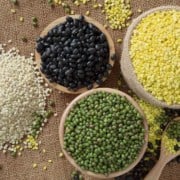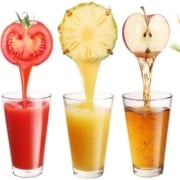Trends: Consumers Want More Functional, Healthy Beverages
Reading Time: 3 minutes
Consumers approach wellness in a holistic view these days. They prefer foods that come are organic and GMO-free, and other clean label cues. This trend is taking over drinks as well as more consumers want functional and healthy beverages.
The Trend for Healthy Beverages
Innova Market Insights, a Netherlands-based company, noted that many consumers are now becoming savvy when it comes to buying their favorite drinks. In 2016, a trend regarding the rising consumption of functional beverages rose to 27.2% from 12.6% in 2012. This means that more people opt for drinks that are fortified with vitamins and minerals or those that contain high amounts of protein for muscle buildup. These drinks are touted for their health benefits. The result is many companies in the US and UK are shifting their focus to healthy beverages to supply the growing demands of the market.

Aside from functional beverages, there is also a growing trend called “lighter enjoyment” where consumers are opting for alcoholic drinks that have lighter alcohol content and more flavor and texture to reap the benefits of the alcoholic beverage without the need to be intoxicated.
Today’s shoppers are taking health and other wellness-related matters into their own hands, and this has created a niche within the beverage industry to meet the growing demand. There is an increasing number of consumers who are following healthy routines such as training and exercising, so they need a drink to support their lifestyle.
The Effect of The Healthy Beverage Market
So why are many people turning to healthy foods and beverages instead of medicine? People who are not getting their desired results from traditional medicine are trying out health and wellness products. The trend here is an opportunity for companies to innovate their products into functional food and beverages.
This is where personalization of products comes in as people have different preferences when it comes to their health and wellness. For instance, people who follow specific diets tend to avoid specific ingredients in their beverages. So the traditional, one-size-fits-all approach to creating drinks is no longer a reliable concept for manufacturers.
Many shoppers are making more focused and informed buying decisions. They are very mindful of the types of products that they buy. Aside from the kinds of ingredients, the “why,” as well as the “how” behind the product, is an essential factor in the decision making process of today’s shoppers. This adds another layer of complexity to the food and beverage industry to develop products that will appeal to more educated customers.
Beverages attribute to more than $11 billion in global sales, and these highly competitive functional drinks are slowly creeping up to make up a quarter of the market. In fact, functional and healthy beverages made $3.1 billion in sales last year, and the projections seem to grow more by the year.
Inspired by www.bevindustry.com






